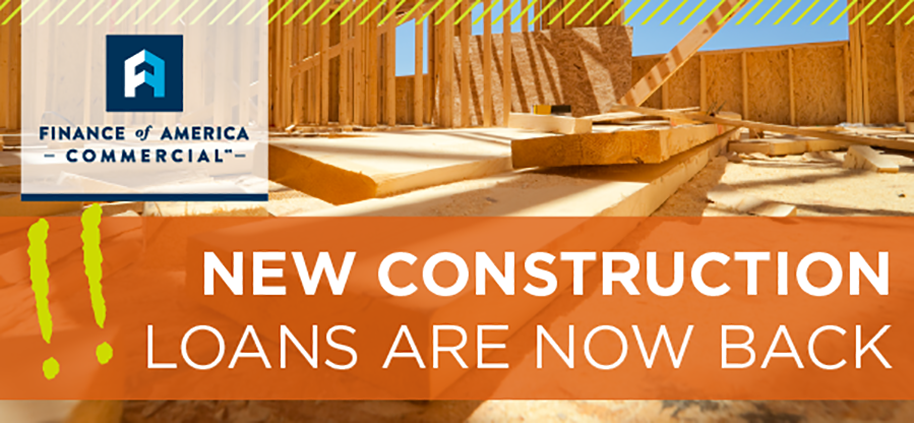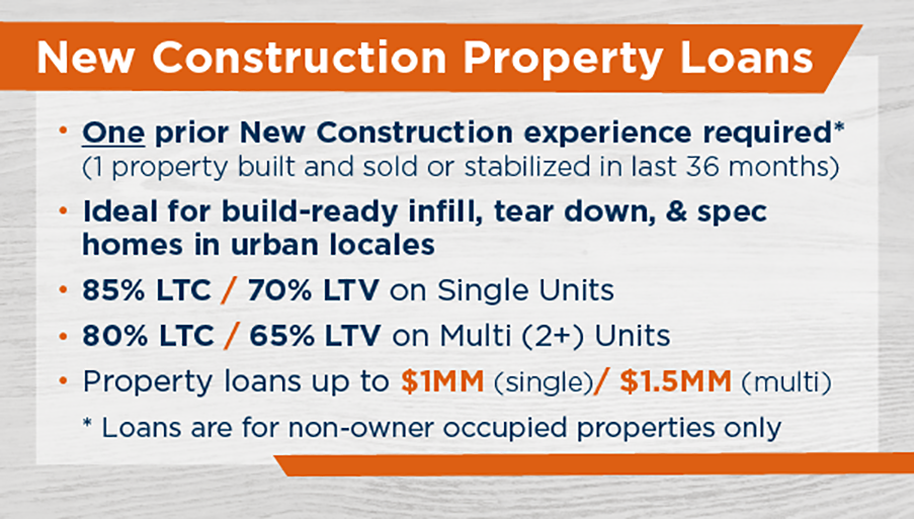Image by Gerd Altmann from Pixabay
By: Vinney (Smile) Chopra and Jon Roosen
Key facts on the Silver Tsunami:
- This year, approximately 23 million Americans are over 75 years old while 8.9 million are over 83. As a general rule, most Americans transition to senior housing by the time they reach 83 years old.
- The OLDEST baby boomers will not turn 83 until the year 2029, thus allowing the floodgates to open for the silver tsunami. The senior housing industry is only beginning and is expected to skyrocket over the coming years.
- Predictions suggest that 2 million Americans will reside in senior housing by the year 2030, which is two times the number of Americans in senior housing in the year 2016.
- Today, 15.6% of the American population is 65 years or older. By 2050, estimates predict over one fifth of the population will be 65 years or older.
Senior living investors should understand that the senior industries profit from a huge demographic groundswell. The Baby Boomer generation will hit the 75+ age mark by the year 2021, as they begin their retirement years. As this happens, baby boomers will seek housing in an industry that is undersupplied and heavily out of step with shifting market demands and caregiving structures. For example, according to CBRE, 40,325 units must be constructed each year in order to satisfy peak demand in the years 2020-2025. When compared to the actual pace of construction in 2014 of 16,440 units per year, construction rates fall short by far. A clear trend has formed showing that despite the overwhelming growth in senior population, growth in senior housing has remained far below the threshold to keep pace.
As such, we conclude that one of the most risk-adjusted prospects in both commercial real estate and general domestic investment is the acquisition, renovation, and growth of senior living facilities. When comparing senior housing to more traditional types of real estate such as multifamily, senior housing is much more operationally complex and demanding from a regulatory perspective. Because of this, efficient execution of a senior housing deal requires an experienced and committed investment team.
Over the past 55 years, global life expectancies have risen from 49 to 72 years of age. The world population of those age 65 and older will double todays numbers and reach 1.3 billion by 2040.
 Image by Tumisu from Pixabay
Image by Tumisu from Pixabay
Aging demographics have created five unique investment opportunities for Americans, one of which is senior housing. With the increased demand for housing created by aging demographics, the U.S. senior housing industry is prepped for a future of unprecedented growth.
According to Senior Housing Analytics figures cited by PGIM, the demand for new senior housing in the United States is expected to rise by around 850,000 units between 2010 and 2030. PGIM’s study “A Silver Lining: The Investment Implications of an Aging World” notes that lucrative investment prospects exist for independent living, RCFE, assisted living, and memory care classes.
Industry centered on senior care and housing is complex. This industry provides a broad array of services to seniors over the age of 75, and can be divided into four care segments. These segments include Independent Living, Assisted Living, Memory Care, and Skilled Nursing Care. Historically, nursing care has been provided in a hospital-like setting; however, a shift is underway to transition into a more homelike environment for nursing care. The remaining three care segments are traditionally delivered in a multifamily residential setting. These housing facilities, known as continuing care retirement facilities (CRCCs) generally provide all three remaining care segments: independent living, assisted living, and skilled nursing, in one community.
While the senior housing industry is complex and difficult to maneuver at times, there is a simple solution for investors who want a piece of the pie without the knowledge to be involved at the level of a general partner. Investors can become passive investors by buying shares in senior housing investments. Through passive investing, investors can take advantage of this exploding market without the headache of management and general partnership. We can help direct you to these high-quality passive investing opportunities.
Senior Housing Is a Recession Resistant Asset Class
A huge advantage senior housing investors have over traditional investors is the durability of the senior housing segment of the commercial market. Senior housing lacks dependence on economic and real estate climates, and this is a key component to the sector’s success. For the last ten years, senior housing has been the number one performing commercial real estate industry. This outperformance of other industries includes the era encompassing the 2007 stock market crash, in which returns dropped as much as 20 percent for other commercial sectors.
Why Is Senior Housing Recession Resistant?
 Image by Besno Pile from Pixabay
Image by Besno Pile from Pixabay
Econ 101: Supply and Demand
- Huge Demand: As discussed above, the growth of the senior communities in America is unbelievable. As our baby boomers age, the number of Americans 65 and older will grow from 47.8 million in 2015 to 79.2 million by 2035. This huge rise continues to produce higher demand for senior housing facilities.
- Minimal Supply: While our elderly populations increase in size, you would imagine construction in senior housing would increase concurrently. Unfortunately, that has not been the case. Senior housing construction began a dramatic decline in 2008 that continued through to 2011 followed by only moderate growth through 2018. From the years 2014 through 2019, units constructed increased sharply; however, in 2020, occupancy rates are expected to continue rising while development slows once more.
Where Are Senior Housing Investments Moving?
While still a relatively new phenomenon, the senior housing sector is generating talk among real estate investors. The 2021 report by PwC on “Emerging Trends in Real Estate” named senior housing investing as one of the best for years to come. The survey results showed a growing interest from investors in independent living, assisted living, nursing homes, and long-term care facilities. These opportunities will only continue to increase as we move into the year 2021.
A survey from 2019 by the CBRE titled “U.S. Seniors Housing & Care Investor Survey and Trends Report” further supports rising interest in senior housing investing. The survey indicated that 19% of respondents were already invested in the senior housing sector, and 20% were interested in pursuing such investments in the future. This data overall shows a remarkable trend that almost two-thirds of property investors surveyed were interested in the senior housing sector. This interest is backed by several key factors and benefits of senior housing investments. Further, several forecasters have predicted that the senior housing sector will continue to skyrocket in the near future.
Below, we will detail some top reasons to start investing in senior housing.
#1. Baby Boomers Are Driving the Demand
If there is one fact becoming excruciatingly clear throughout our research on the senior housing sector, it is that more and more Baby Boomers enter retirement each day, thus driving up the demand for senior housing. This trend will continue over the next many years, as Baby Boomers will continue to need housing for decades. By 2035, 79.2 million Americans will be age 65 or older. With these numbers, the demand for senior housing is massive and is just beginning.
 Photo by Kaboompics .com from Pexels
Photo by Kaboompics .com from Pexels
The average senior housing resident is typically 83 years of age or older. With the oldest Baby Boomers today averaging 73 years old, the U.S. Census Bureau estimates approximately 8.5 million Americans are age 83 or older. Further, the U.S. population is growing. By 2025, the U.S. Census Bureau estimates that our population will exceed 10.2 million people. The key point from these facts is that in the coming decade, demand will rise for senior housing. This makes senior housing investing a reliable, savvy opportunity for long-term investments.
Another key benefit of senior housing is that not only is there a huge population demand, but there is a need-based demand as well. This demand is non-discretionary and merely a consequence of the chronic care issues that come with an aging demographic. This demand is unique to senior housing and does not correlate with other commercial real estate sectors such as office, retail, or industrial properties.
A further benefit of senior housing over other commercial real estate sector is that senior housing is far less affected by technological risk than other industries. This creates a more certain investment analysis for senior housing, while such an analysis of other sectors could be limited by technological changes.
While senior housing has its own business cycle similar to other sectors, the business cycle of senior housing is far less fluctuant. This is because senior housing does not depend on changes in employment rates and expansion and contraction of GNP. In today’s times, seniors are primed to live out their senior years using the alternate forms of income compared to a traditional job. These alternate income sources include retirement plans, stock portfolios, insurance benefits, and 401K programs, among others.
No industry is perfect, and like others, senior housing is impacted by severe inflation and an inability to sell. However, these impacts tend to be moderate. The benefits of social security payments to seniors and the need-driven demand of senior housing provide substantial backing to senior housing. With these benefits in mind, the senior housing industry is protected from traditional economic setbacks that take down other commercial real estate investments.
Finally, national operators have successfully maintained occupancy rates of 88% or higher in senior housing, even in markets that have reached temporary saturation.
#2. New Senior Housing Development and Supply
 Image by Arek Socha from Pixabay
Image by Arek Socha from Pixabay
The current inventory for senior housing is relatively outdated with 58% of the current housing units over 17 years old and 32% over 25 years old. As with any property, aging of these units only worsens with time. The existing units will become progressively more and more outdated as care amenities continue to improve, tastes evolve, and new regulations come to light. Additionally, as we’ve discussed previously, construction of senior housing units is not keeping pace with the aging senior demographic. These trends present both a challenge and an opportunity for real estate investors looking into the senior housing sector.
While it is still not keeping pace with the aging demographic, reports do indicate that senior housing development is increasing. The 2020 Emerging Trends Report concluded that senior housing is the top commodity for the development of residential properties and the 3rd prospect for development in commercial and multifamily properties.
#3. A Recession-Resilient Investment
When compared to other traditional real estate sectors, senior housing is exceptionally resilient. While it has its own business cycle, the cycle in senior housing is far more steady than other sectors and less affected by traditional economic changes. This is largely due to the key benefits of senior housing already discussed.
Additionally, the need-based demand for senior housing is an undeniable benefit. There will always be a need for long-term, quality medical and health care facilities for our seniors, regardless of economical circumstances. These characteristics allow senior housing investments to thrive while other industries suffer during recession times among other economic pitfalls.
Traditionally, the senior housing sector has proved itself to be resilient to difficult economic times. This should reassure you as an investor that you can rest easy with a senior housing investment. It is a low-risk and reliable investment with the potential for phenomenal returns.
#4. Historic Investment Performance
 Image by Gerd Altmann from Pixabay
Image by Gerd Altmann from Pixabay
Historically, senior housing investing has a track record of success. When compared to other major real estate investments, senior housing generally has increased income stream, appreciation, and total return on investment.
To be more specific, the National Council of Real Estate Investment Fiduciaries (NCREIF) 2018 property index results revealed that over a ten-year period, returns for senior housing averaged 10.2%. This average is well above the returns from overall property index (6.09%) and apartments (6.10%).
Regarding appreciation, senior housing investments produced 3.73% of total returns compared to 0.54% for overall property index and 1.03% for apartments.
Another way senior housing outpaces other sectors is total income returns. Senior housing investing produced total income returns of 6.61% while property index and apartments produced 5.53% and 5.20%, respectively.
Senior Housing as an Alternate Investment
According to the CBRE, over the past 13 years, the market share of alternative investments has more than doubled. More recently, in the past five years, annual investments in specialty properties have made up 12% of all CRE investments. This accounts for approximately $59 billion in yearly transactions.
Below, we have listed the eight major alternative investment sectors along with the percent share of all alternative investments and average annual investment volume from the years 2014-2019.
- Seniors housing and care- 31.3%/$17.2B
- Medical office- 22.1%/$12.2B
- Student housing- 13.3%/$7.3B
- Life sciences- 11.8%/$6.5B
- Self-storage- 9.0%/$5.0B
- Manufactured housing communities- 6.3%/$3.5B
- Active adult and 55+ communities- 3.2%/$1.7B
- Data centers- 3.1%/$1.7B
Benefits of Alternative Investments
 Image by Gerd Altmann from Pixabay
Image by Gerd Altmann from Pixabay
The key positives of investing in alternative investment sectors can be narrowed into five main benefits:
- The effects of cap rate compression from traditional assets can be offset by yield premium and higher cap rates of specialty investments.
- Market demand for alternative investments is rising due to fundamental structural changes in business, technology, demographics, tenant experience, and ESG criteria.
- Product availability is rising as developers rise to meet the demands of investors on national and international levels.
- Alternative investments offer a great opportunity for portfolio diversification for investors currently holding traditional assets.
- Alternative investments are improving in transparency of pricing, operations, and market performance, making such investments more appealing to investors.
Bottom Line
Whether you are a seasoned investor looking to diversify or just getting started investing, senior housing should be at the top of your list. The demand is undeniable as our Baby Boomers continue to age, providing a great opportunity for growth and development. Senior housing is a low risk investment with potential to provide exceptionally high returns.
If you’ve ever been interested in learning more about investing into senior housing, please visit SeniorLivingInvesting.Co or email us directly at [email protected].
 As 2021 begins, preparing for retirement and the future is more important than ever. Today’s market offers the best opportunity to profit from real estate since 2008!
As 2021 begins, preparing for retirement and the future is more important than ever. Today’s market offers the best opportunity to profit from real estate since 2008!

















































